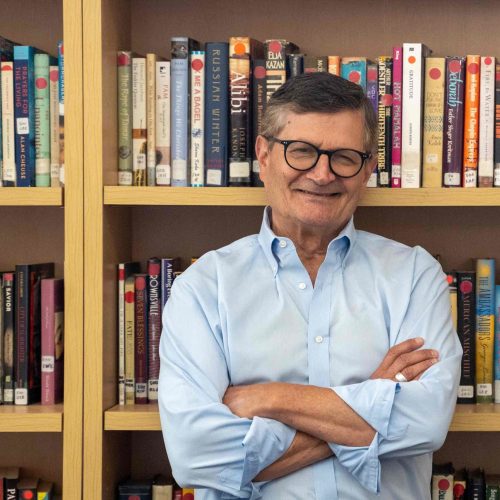As compliments go, it’s going to rank as one of my all-time favorites, and I don’t even think he realized how much it meant to me.
While the twenty-five who attended our recent event for prospective students were having a terrific time bowling and laser-tagging (is that a verb?), I had a series of conversations with their parents. They asked some great questions – about what Texts we’ll be studying, about the role of co-curricular programming and about the balance of Jewish Studies and General Studies. One father and I were happily diving into the weeds of Jewish history when I referenced the concept of ahavat chinam (loving others freely, without judgment, which is usually specifically understood as Jews accepting and respecting other Jews). And that’s when he told me that I sounded like Rav Kook.
Rav Kook! He could not have chosen a personality more cherished by me, someone whose writing leaps off the page as an exemplar of Jewish wisdom. Abraham Isaac Kook was the first Ashkenazi Chief Rabbi in British mandatory Palestine, and is considered to be the “father” of religious Zionism. Among his innumerable contributions to Zionist thought and Jewish scholarship, he was also a proponent of Jewish unity, of Jews accepting other Jews, irrespective of doctrinal differences.
Rabbinic teaching has told us that one of the major reasons for the destruction of the Second Temple and the subsequent exile of the Jewish people was sinat chinam, most often translated as “baseless hatred.” A cold hard look at reality would point us to the fact that tiny Judea was overrun by the enormous power of Rome, but the rabbis wanted us to learn a lesson beyond geopolitics. Two thousand years ago, we were divided in many ways – into religious sects, into political factions (today we might call these divisions denominations), and some were so viscerally opposed to the others that they turned each other into the Romans, knowing that doing so would result in Jewish deaths. “Baseless hatred” is a code phrase for brother-against-brother enmity, that eventually leads to catastrophe – for every brother.
Rav Kook – and there are certainly others – has written powerfully that what is needed is not only the absence of sinat chinam (of baseless hatred), but rather the presence of ahavat chinam – free, ceaseless love for each other. When he spoke and wrote and preached (yes, it’s also a Jewish verb), he often recalled Jewish history as a cautionary tale, a reminder of what happens when we hyper-focus on our differences, rather than our commonalities. A committed commandment-following observant rabbi, he believed that the Jewish state-to-come needed religious and “secular” Jews, that each would play a role in the establishment of Israel.
When I’ve been privileged to teach Zionist thought or when I’ve discussed Jewish “pluralism,” I’ve nearly always relied on at least a quote or a longer reference from one of Rav Kook’s books. Along with Herzl and A.D. Gordon and Achad Ha’am and other seminal thinkers, Kook has bequeathed a powerful legacy to subsequent generations of Jews and Israelis.
If I “sounded like Rav Kook” it’s only because I’ve internalized his teachings, and those lessons have been reinforced by a study of our history. In some way, even speaking about Jewish “pluralism” is putting the cart before the horse. Embracing ahavat chinam – universal love and respect – has to come first; pluralism is the implementation of that non-judgmental acceptance, it’s how we manifest the emotion.
For this school – and for our community and people writ large – love of one’s fellow man (and one’s fellow Jew) is the essential foundation, from which everything else will develop. As I’ve noted before, the goal is unity – not conformity. We have and always have had our differences; together, we create a gorgeous tapestry. Unravel one thread, remove one color, and the whole is made poorer.
שבת שלום – Shabbat Shalom,
Jerry

